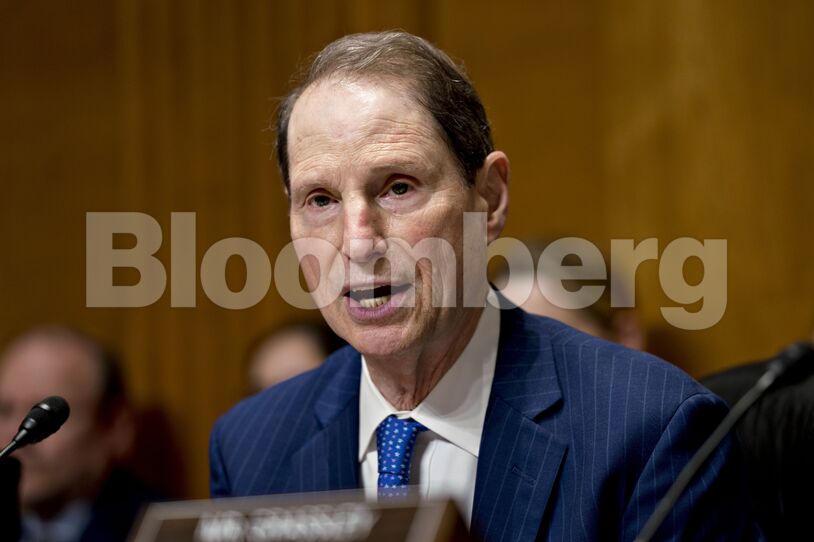The proposal by Senator Ron Wyden, an Oregon Democrat who chairs the tax-writing Finance Committee, would mean oil companies face federal taxes of as much as 42% on profits considered excessive — the 21% US corporate tax rate plus a new 21% surtax, according to two people briefed on the proposal.
Oil Lobby Pushes Eased Tariffs and Faster Permits to Tame Prices
Wyden has yet to release his plan publicly, and he’d likely need all 50 in the Senate Democratic caucus to support it in order to overcome united Republican opposition. He’s among several Democratic lawmakers, including Senator Sheldon Whitehouse and Representative Peter DeFazio, who have discussed targeting what they consider excessive oil-company profits.
“The proposal I’m developing would help reverse perverse incentives to price gouge, by doubling the corporate tax rate on companies’ excess profits, eliminating egregious buybacks and reducing accounting tricks,” Wyden said about the proposal he plans to introduce in the coming weeks. “By contrast, companies that provide relief to consumers by either reducing prices or investing in new supply would not be affected.”
The idea has caught the attention of top Biden aides in recent weeks, as they search for any and all ideas to tackle rising energy costs ahead of the November midterm elections. It’s unlikely the proposal will become law by fall, but introducing it gives Democrats a platform to present to voters showcasing how they would handle inflation with wider majorities in Congress.
‘Real Issue’
“We’re not ruling that out of consideration. We’ve made that clear,” Bharat Ramamurti, deputy director of the National Economic Council, told Bloomberg TV’s “Balance of Power with David Westin” with regard to the proposal.
Biden, Ramamurti added, has made clear that “there’s a real issue here with the level of production by the oil companies and the profits that they are making right now after the Russian invasion of Ukraine.”
Republicans are almost certain to uniformly oppose the windfall-tax idea, while some Democrats, such as Senator Joe Manchin of West Virginia, have expressed skepticism of proposals to hike taxes on fossil-fuel producers.
At a port in Los Angeles on Friday, President Joe Biden specifically called out Exxon for raking in bumper earnings. “We’re going to make sure everyone knows Exxon’s profits. Exxon made more money than God last year,” Biden said.
Taxing excessive oil company profits is one of many policy ideas under consideration in the White House, two administration officials said. Yet internally, aides remain concerned such a tax could hurt ongoing efforts to boost the supply of oil.
If combined with a gasoline rebate, a windfall profits tax would both deter supply and encourage fuel demand, said Kevin Book, managing director of research firm ClearView Energy Partners LLC. “It is the opposite of balancing the market.”
An idea out of the Treasury Department to place a cap on the price of Russian oil — in concert with European allies — has gained far more traction inside the administration.
Wyden’s plan would also impose a 25% stock buyback tax for oil and gas companies that repurchase their own shares, Wyden spokeswoman Ashley Schapitl confirmed. Both levies apply to oil and gas companies with at least $1 billion in revenue and would expire at the end of 2025, according to the people briefed on the plan.
The 25% levy would likely deter many corporations from doing buybacks and is a steep increase from similar proposals that have been floated previously. House Democrats last year approved a 1% buyback tax as part of Biden’s Build Back Better agenda that would apply to companies in all sectors.
Wyden also proposes to eliminate an accounting benefit, known as last-in first-out, or LIFO, that can deliver tax breaks for oil and gas companies with at least $1 billion in revenue starting in 2023.
Share This:




 CDN NEWS |
CDN NEWS |  US NEWS
US NEWS 





























COMMENTARY: Fossil Fuels Show Staying Power as EU Clean Energy Output Dips – Maguire